War - How Conflict Shaped Us
By: Margaret MacMillan
-
Rs 1,247.50
- Rs 2,495.00
- 50%
You save Rs 1,247.50.
Due to constant currency fluctuation, prices are subject to change with or without notice.
New York Times 10 Best Books of 2020
Sunday Times best books for Autumn 2020
Guardian critics' pick for Autumn 2020
Wall Street Journal notable book of 2020
The time since the Second World War has been seen by some as the longest uninterrupted period of harmony in human history: the 'long peace', as Stephen Pinker called it. But despite this, there has been a military conflict ongoing every year since 1945. The same can be said for every century of recorded history. Is war, therefore, an essential part of being human?
In War, Professor Margaret MacMillan explores the deep links between society and war and the questions they raise. We learn when war began - whether among early homo sapiens or later, as we began to organise ourselves into tribes and settle in communities. We see the ways in which war reflects changing societies and how war has brought change - for better and worse.
Economies, science, technology, medicine, culture: all are instrumental in war and have been shaped by it - without conflict it we might not have had penicillin, female emancipation, radar or rockets. Throughout history, writers, artists, film-makers, playwrights, and composers have been inspired by war - whether to condemn, exalt or simply puzzle about it. If we are never to be rid of war, how should we think about it and what does that mean for peace?
New York Times 10 Best Books of 2020
Sunday Times best books for Autumn 2020
Guardian critics' pick for Autumn 2020
Wall Street Journal notable book of 2020
The time since the Second World War has been seen by some as the longest uninterrupted period of harmony in human history: the 'long peace', as Stephen Pinker called it. But despite this, there has been a military conflict ongoing every year since 1945. The same can be said for every century of recorded history. Is war, therefore, an essential part of being human?
In War, Professor Margaret MacMillan explores the deep links between society and war and the questions they raise. We learn when war began - whether among early homo sapiens or later, as we began to organise ourselves into tribes and settle in communities. We see the ways in which war reflects changing societies and how war has brought change - for better and worse.
Economies, science, technology, medicine, culture: all are instrumental in war and have been shaped by it - without conflict it we might not have had penicillin, female emancipation, radar or rockets. Throughout history, writers, artists, film-makers, playwrights, and composers have been inspired by war - whether to condemn, exalt or simply puzzle about it. If we are never to be rid of war, how should we think about it and what does that mean for peace?
History's People: Personalities and the Past
By: Margaret MacMillan
Rs 957.00 Rs 1,595.00 Ex Tax :Rs 957.00
Women of the Raj: The Mothers, Wives and Daughters of the British Empire in India
By: Margaret MacMillan
Rs 1,256.50 Rs 1,795.00 Ex Tax :Rs 1,256.50
Zubin Mehta: A Musical Journey (An Authorized Biography)
By: VOID - Bakhtiar K. Dadabhoy
Rs 525.00 Rs 1,050.00 Ex Tax :Rs 525.00
12 Rules for Life: An Antidote to Chaos
By: Jordan B. Peterson
Rs 2,515.50 Rs 2,795.00 Ex Tax :Rs 2,515.50
History's People: Personalities and the Past
By: Margaret MacMillan
Rs 957.00 Rs 1,595.00 Ex Tax :Rs 957.00
Waking Up: Searching For Spirituality Without Religion
By: Sam Harris
Rs 1,008.75 Rs 1,345.00 Ex Tax :Rs 1,008.75
Our Malady: Lessons in Liberty and Solidarity
By: Timothy Snyder
Rs 1,077.00 Rs 1,795.00 Ex Tax :Rs 1,077.00
The Origins of Political Order From Prehuman Times to the French RevolutioN
By: Francis Fukuyama
Rs 3,505.50 Rs 3,895.00 Ex Tax :Rs 3,505.50
Manning Up: How the Rise of Women Has Turned Men into Boys
By: Kay Hymowitz
Rs 746.25 Rs 995.00 Ex Tax :Rs 746.25
The Obama Syndrome: Surrender At Home War Abroad
By: Tariq Ali
Rs 1,165.50 Rs 1,295.00 Ex Tax :Rs 1,165.50
The Quest For Meaning: Developing A Philosophy Of Pluralism
By: Tariq Ramadan
Rs 1,185.75 Rs 1,395.00 Ex Tax :Rs 1,185.75
The Pakistan US Conundrum Jihadists The Military And The People The Struggle For Control
By: Yunas Samad
Rs 1,185.75 Rs 1,395.00 Ex Tax :Rs 1,185.75
An Enemy We Created: The Myth Of The Taliban Al Qaeda Merger In Afghanistan 19702010
By: Alex Strick van Linschoten
Rs 3,937.50 Rs 5,250.00 Ex Tax :Rs 3,937.50
WikiLeaks: Inside Julian Assanges War on Secrecy
By: David Leigh & Luke Harding
Rs 637.50 Rs 850.00 Ex Tax :Rs 637.50
12 Rules for Life: An Antidote to Chaos
By: Jordan B. Peterson
Rs 2,515.50 Rs 2,795.00 Ex Tax :Rs 2,515.50
History's People: Personalities and the Past
By: Margaret MacMillan
Rs 957.00 Rs 1,595.00 Ex Tax :Rs 957.00
Waking Up: Searching For Spirituality Without Religion
By: Sam Harris
Rs 1,008.75 Rs 1,345.00 Ex Tax :Rs 1,008.75
Our Malady: Lessons in Liberty and Solidarity
By: Timothy Snyder
Rs 1,077.00 Rs 1,795.00 Ex Tax :Rs 1,077.00
No recently viewed books available at the moment.
Zubin Mehta: A Musical Journey (An Authorized Biography)
By: VOID - Bakhtiar K. Dadabhoy
Rs 525.00 Rs 1,050.00 Ex Tax :Rs 525.00
History's People: Personalities and the Past
By: Margaret MacMillan
Rs 957.00 Rs 1,595.00 Ex Tax :Rs 957.00
Women of the Raj: The Mothers, Wives and Daughters of the British Empire in India
By: Margaret MacMillan
Rs 1,256.50 Rs 1,795.00 Ex Tax :Rs 1,256.50
12 Rules for Life: An Antidote to Chaos
By: Jordan B. Peterson
Rs 2,515.50 Rs 2,795.00 Ex Tax :Rs 2,515.50
History's People: Personalities and the Past
By: Margaret MacMillan
Rs 957.00 Rs 1,595.00 Ex Tax :Rs 957.00
Waking Up: Searching For Spirituality Without Religion
By: Sam Harris
Rs 1,008.75 Rs 1,345.00 Ex Tax :Rs 1,008.75
Our Malady: Lessons in Liberty and Solidarity
By: Timothy Snyder
Rs 1,077.00 Rs 1,795.00 Ex Tax :Rs 1,077.00











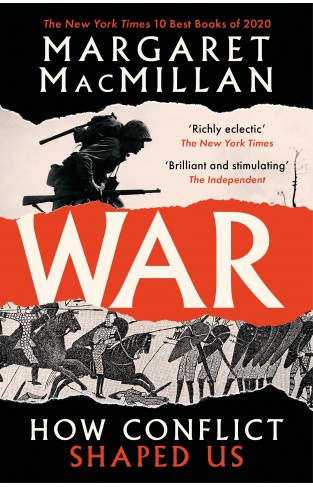
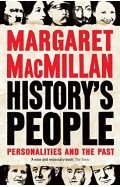
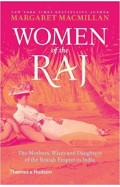

-120x187.jpg?q6)





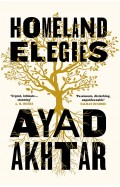
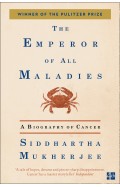
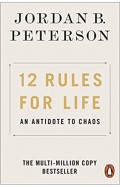
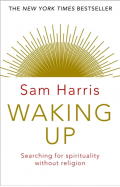
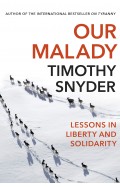
-120x187.jpg?q6)



-120x187.jpg?q6)



